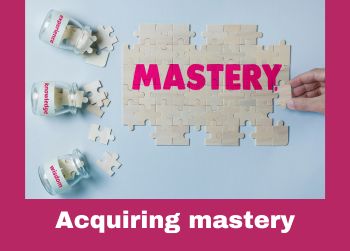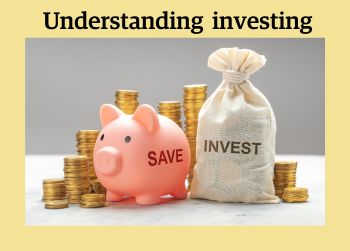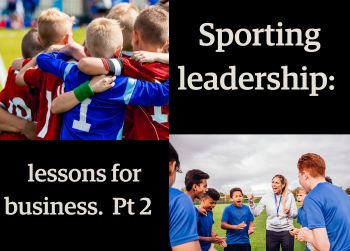You’re an employer of a small team of people. One day a staff member comes to you and tells you they are transgender. What do you need to know to make your workplace inclusive and your team member feel safe?
In today’s blog, Ben Sarten, Co-founder, Every Gender outlines a roadmap for employers and colleagues to successfully include transgender employees and colleagues.
Navigating Trans inclusion in New Zealand workplaces
Adam Rohe (he/they), co-founder of Every Gender, facilitating a Gender and Gender Expression workshop. Image supplied courtesy of Every Gender
Imagine you are a small business owner or people leader at a local company in Aotearoa, and one of your dedicated employees chooses a quiet moment during the workday to share a deeply personal aspect of their life with you. “I’m transgender,” she says. “I’d appreciate it if you could use she/her pronouns for me now, and my new name is Emma.”
In this moment, you are presented with a unique opportunity – one that may be unfamiliar territory for you or your organisation. There’s no ready-made playbook for such situations. However, your response holds the power to strengthen your team, elevate your company’s reputation, and show respect for all of your employees.
Diversity, Equity, and Inclusion (DEI) initiatives can yield significant advantages, but they require ongoing commitment and a willingness to learn and adapt. While it may initially seem daunting, the rewards are substantial, not just for the individual but for your entire organisation.
Transitioning at Work
As Emma begins to share her authentic self with your team, it’s essential to recognize that this might be her first time being out as a transgender person in a workplace setting. This experience can be confusing and emotionally charged. The process of coming out, selecting a new name, and requesting specific pronouns involves a deep level of self-discovery and vulnerability.
Most of your colleagues may show support and be willing to use her correct name and pronouns, which is a positive start, but it’s important to remember that this could also be your team’s first experience working alongside a transgender person.
Curiosity is natural, but it’s vital to create a space where Emma can focus on her work without feeling like an informal trans educator within your workspace.
Expecting Emma to shoulder the responsibility of educating her colleagues about transgender issues can impact her well-being and ability to perform her job effectively. This can lead to burnout, decreased opportunities for advancement, and – as a result – major income disparities; all issues that persist throughout New Zealand. (A 2018 survey of transgender health and wellbeing outcomes found the median income for the transgender population was around 50% that of the general population).
To address these challenges, the responsibility of educating your team and fostering an inclusive workplace falls on the broader organisation. Each situation is unique, and tailored support is essential. Seeking education from trans-led organisations should be considered a crucial step in this journey. Organisations like Every Gender, Gender Minorities Aotearoa, and InsideOUT can provide guidance and insights needed to navigate this path successfully.
So, what can I do?
For employees, colleagues, and allies, respecting a person’s name and pronouns is fundamental. Their gender, personal history, and medical background are private matters, shared at their discretion. The best way to support is to recognize and acknowledge a person’s identity and treat them with kindness and respect.
For employers and people managers, things are more complex. Confidentiality, consent, and gender inclusive policies must be a top priority. Changes may be required in other areas like uniforms, leave, gender inclusive facilities and benefit packages. The decision-makers responsible for these inclusivity initiatives should be well-informed and accountable for their choices, ensuring their impact aligns with every employee’s wellbeing and the goals of the wider company.
Final Thoughts
To become a genuine ally, whether as an individual or a business, commitment to continuous learning and growth is paramount. There is no one-size-fits-all solution, but seeking DEI programs led by the community you aim to include can provide the necessary guidance. This choice not only ensures that educators are well-versed in the subject matter but also provides financial support to the very communities you seek to embrace.
In conclusion, embracing trans inclusion in the workplace is not just about meeting certain goals or avoiding pitfalls. It’s about creating an environment where everyone can thrive, where each member of your team feels valued and respected for who they are. It’s a journey worth embarking on—one that can lead to a more inclusive, supportive, and successful workplace for all.
Ben Sarten (they/them)
Co-Founder, Every Gender.
Every Gender is a storytelling vehicle bringing trans lived experience education and consultation into workplaces. In really simple terms, we, as trans people, teach businesses what steps they can take in order to support trans people, like us, at work.
We offer workshops, consultation content and one on one coaching to leadership teams as they build cultural competency in the trans inclusion space. Our vision is to create pathways for trans individuals into positions of self determination, financial empowerment and organisational leadership.

If you’d like to read further have a look at the list of resources we have compiled, many of which are available via Wellington City Libraries collection:
 Trans and Non-binary Inclusive Workplaces: A Guide for Employers and Employees
Trans and Non-binary Inclusive Workplaces: A Guide for Employers and Employees
This guide aims to help employers support trans and nonbinary employees by bringing you up to speed on your responsibilities and other ways you can help. The second part also explains your rights as a trans or nonbinary employee. (Outline Aotearoa)
Transgender employees
Managers and workmates must act lawfully and should support transgender employees who are transitioning or intending to transition, or are having issues at work. (Employment.govt.nz)
Rainbow resources
These resources and links will help organisations ensure their workplaces are inclusive and supportive of those from the Rainbow community. (Diversity works)
Creating a trans-inclusive workplace: how to make transgender employees feel valued at work Thoroughgood CN, Sawyer KB, Webster JR. Harvard Business Review. 2020;98(2).
Transgender people often experience discrimination, stigma, hostility, and pressure to control or manage their individual identities when around others, including work environments. This is due to how people are socialized to perceive and perform gender. These reactions from others, however, have significant negative impacts on trans employees’ job satisfaction and well being. Although awareness of discrimination has grown, many employers are ill-equipped to address the issue and risk losing opportunities to recruit and retain top talent. Four helpful practices are identified: promote trans inclusivity via dress codes, bathroom use, and pronouns; support individuals undergoing gender transitions; adopt trans-specific diversity training; and implement resiliency interventions.
(Library registration and login required.)
7 Small Ways to Be a More Inclusive Colleague. Lordan N, Lordan G. Harvard Business Review Digital Articles. February 2023:1-5. Accessed September 5, 2023.
Lists seven small actions you can take to be a more inclusive colleague and help foster a comfortable and safe work environment for everyone. Library registration and login required.
LGBTQ+ voices: Learning from lived experiences
New research reveals the challenges that LGBTQ+ employees face, and six ways to help them bring their authentic selves to work. (McKinsey)
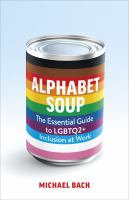 Alphabet soup : the essential guide to LGBTQ2+ inclusion at work / Bach, Michael
Alphabet soup : the essential guide to LGBTQ2+ inclusion at work / Bach, Michael
“Everything you need to know about creating LGBTQ2+ inclusive spaces, from A to Z. What you aren’t doing to create an LGBTQ2+ inclusive space is costing you more than you might think. Every year, organizations (be they employers, volunteer organizations, hospitals, academic organizations, religious and faith organizations, or any space where people congregate) who aren’t doing the necessary work are losing millions of dollars to low productivity, staff turnover, missed opportunities, and reputational damage–and no, simply slapping a rainbow over your company logo every June isn’t going to cut it. In this myth-busting follow-up to the 2020 breakout bestseller Birds of All Feathers, diversity and inclusion expert Michael Bach breaks down everything you need to know about creating inclusive spaces for people who don’t fit squarely into the “straight” and “cis” box. And don’t worry if you’re already feeling lost; by the time you’ve finished this book, you’ll know exactly what LGBTQ2+ means–and a whole lot of other stuff to boot. With clarity and a healthy dose of humor, Bach lays out a road map on how to ensure your space is safe for LGBTQ2+ people. You’ll gain a clear understanding of sexuality, gender identity, and gender expression (yes, they’re different things, and it matters); what a Safe Space is, and how to turn your space into one; how to create and properly enforce a Code of Conduct; and how to grab a piece of the fabulous “pink dollar” (worth more than $1 trillion dollars annually in the Canada and US alone!). A must-read for leaders, HR professionals, CEOs, and managers of all levels, Alphabet Soup is a critical guide to creating a truly inclusive space for all–regardless of sexuality, gender identity, or gender expression. Whether you consider yourself an ally, or don’t even know what it means to be one, you’ll come away armed with everything you need to know to create a safe, productive, and thriving LGBTQ2+ inclusive organization.”– Provided by publisher.” (Catalogue)
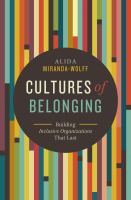 Cultures of belonging : building inclusive organizations that last : a guide to equitable leadership / Miranda-Wolff, Alida
Cultures of belonging : building inclusive organizations that last : a guide to equitable leadership / Miranda-Wolff, Alida
“Clear, actionable steps for you to build new values, experiences, and perspectives into your organizational culture, infusing it with the diversity, inclusion, andbelonging employees need to feel accepted, be their best selves, and do their best work.” (Catalogue)
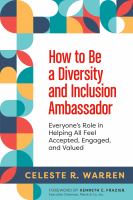 How to be a diversity and inclusion ambassador : everyone’s role in helping all feel accepted, engaged, and valued / Warren, Celeste R
How to be a diversity and inclusion ambassador : everyone’s role in helping all feel accepted, engaged, and valued / Warren, Celeste R
“This book offers a clear, proven framework for how anyone-from the CEO to a frontline employee-can play a role in creating a diverse and welcoming workplace. Creating a diverse workplace needs to be an ongoing effort, not just the subject of an occasional training. What can you do to help? Celeste Warren, vice president for global diversity and inclusion at Merck, says you can become a diversity and inclusion ambassador. These people are committed to helping everyone see the importance of inclusive and equitable practices. Warren offers a straightforward three-stage model: 1. Become aware of your own conscious and unconscious biases; 2. Take an inventory of your surroundings: what is getting in the way of there being an inclusive environment in your organization?; 3. Develop a personal action plan. Depending on readers’ positions, the actions they take can be as simple as consistently raising DEI-related issues in staff meetings or as far-reaching as leading an employee resource group or developing a new hiring policy. In separate chapters, Warren offers specific advice for chief diversity and inclusion officers, C-suite leaders, frontline managers, human resources practitioners, and individual contributors. Featuring tools, exercises, and examples, this book offers everyone the opportunity to help make diversity a workplace reality. Reading group discussion guide available in book”– Provided by publisher.” (Catalogue)
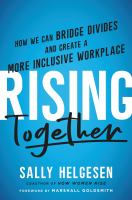 Rising together : how we can bridge divides and create a more inclusive workplace / Helgesen, Sally
Rising together : how we can bridge divides and create a more inclusive workplace / Helgesen, Sally
“Participants at leadership conferences often tell Sally, “Please don’t spend your time telling us why developing and retaining a diverse workforce is important. We get it. The problem is, we don’t know how to do it.” Rising Together provides that missing how in full detail by identifying both what holds us back and specific tactics that can help us move forward. First, Sally identifies the eight common triggers most likely to undermine our ability to collaborate across divides–not only of gender, but also of age, ethnicity, race, sexuality, and life experience. These triggers are widespread, yet rarely acknowledged. They include differences in how people from different backgrounds view ambition, competence, perceptions, fairness, communication, networks, attraction, and humor. Sally then offers specific practices designed to address these triggers: simple behavioral tweaks that we can use on a daily basis; a method for informally enlisting allies to hold us to account; and a means for cultivating and disseminating the dynamic power of we.”–Inside front jacket flap” (Catalogue)
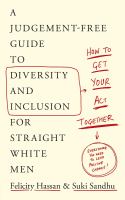 How to get your act together : a judgement-free guide to diversity and inclusion for straight white men / Hassan, Felicity
How to get your act together : a judgement-free guide to diversity and inclusion for straight white men / Hassan, Felicity
“Lead meaningful and positive change in your organisation with the ultimate guide to implementing diversity and inclusion. Of the very few Fortune 500 companies that share diversity data, 72% of their senior executives are white men. And it’s been proven that companies with more diverse management teams have nearly 20% higher revenues. Surely YOU don’t want to be left behind? Moral imperatives aside, the business case for diversity and inclusion is clear – they are clear drivers of innovation, profit and employer brand. But how can male white leadership implement this change? There’s no denying it’s difficult — perhaps you feel afraid to make mistakes, and confused about the evolving language of diversity and inclusion. In this revolutionary guide, leading diversity specialists Felicity Hassan and Suki Sandhu OBE teach you how to create an inclusive environment for your employees and have educated conversations about diversity, illuminating tricky territory with humour and heart. This judgement-free guide will educate, empower and embolden you to create a workplace where anyone can be themselves, regardless of gender, sexual orientation, race, class or disability – and eventually, to change the face of business for the better” — Publisher’s description.” (Catalogue)
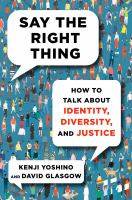 Say the right thing : how to talk about identity, diversity, and justice / Yoshino, Kenji
Say the right thing : how to talk about identity, diversity, and justice / Yoshino, Kenji
“In the current period of social and political unrest, conversations about identity are becoming more frequent and more difficult. On subjects like critical race theory, gender equity in the workplace, and LGBTQ-inclusive classrooms, many of us are understandably fearful of saying the wrong thing. That fear can sometimes prevent us from speaking up at all, depriving people from marginalized groups of support and stalling progress toward a more just and inclusive society. Kenji Yoshino and David Glasgow, founders of the Meltzer Center for Diversity, Inclusion, and Belonging at NYU School of Law, are here to show potential allies that these conversations don’t have to be so overwhelming. Through stories drawn from contexts as varied as social media posts, dinner party conversations, and workplace disputes, they offer seven user-friendly principles that teach skills such as how to avoid common conversational pitfalls, engage in respectful disagreement, offer authentic apologies, and better support people in our lives who experience bias. Research-backed, accessible, and uplifting, Say the Right Thing charts a pathway out of cancel culture toward more meaningful and empathetic dialogue on issues of identity. It also gives us the practical tools to do good in our spheres of influence. Whether managing diverse teams at work, navigating issues of inclusion at college, or challenging biased comments at a family barbecue, Yoshino and Glasgow help us move from unconsciously hurting people to consciously helping them”– Provided by publisher.” (Catalogue)
 One of them / Lal, Shaneel
One of them / Lal, Shaneel
“What would you do if you were told by the people you loved the most that the way you were born was evil and wrong? For Shaneel Lal, this was their reality from the time they were five. Growing up in a tiny, traditional village in Fiji, Shaneel always knew they were different. Still, for the first years of their life, it was idyllic – playing dress-ups in saris with their sister, and hiding under their neighbour’s house, playing games with dolls. But from the time Shaneel started school, they faced condemnation from their family, and then ‘therapy’ from conservative elders in their village. The elders tried to ‘free’ Shaneel from the evil spirits they thought were making them queer. Shaneel was kept away from the girls to stop Shaneel from becoming more feminine, and from the boys to stop Shaneel’s queerness from spreading to them. Eventually the ‘therapy’ escalated to beatings and torture. After escaping Fiji and moving to New Zealand as a teenager, Shaneel tried to keep their sexuality – and gender – to themself, but gradually found the courage to come out. One day, while Shaneel was volunteering at Auckland’s Middlemore hospital, a church leader came up to them and offered to ‘pray the gay away’. It was a lightbulb moment for Shaneel, who could not believe that the same practices that had scarred their childhood in Fiji were operating – and legal – in New Zealand. Determined to ensure others wouldn’t have to go through what happened to them, Shaneel founded the Conversion Therapy Action Group, which lead the movement to ban conversion therapy in Aotearoa”–Publisher’s website.” (Catalogue)
Krow’s TRANSformation
Duration: 1 h 28 min
|Country: Canada
Rating: PG
Year of Release: 2019
Never comfortable with “her” body or given name, Kayanna knew since childhood he was meant to be a boy. Struggling deeply with his identity throughout his youth, he adopted a new name – Krow. At 12-years-old, Krow began a career as a globe-trotting “female” fashion model. While living a glamourous lifestyle, he never felt fully comfortable, despite the attention and praise lavished on him for his good looks. In a series of honest and often heart-breaking interviews, we see how Krow’s decision impacted those closest to him. His mother, Lisa, initially struggles with the revelation that her child wanted to transition. But, as she learns what it means for him, she begins to whole-heartedly embrace her son’s new life. Then there is Krow’s friend Ashton and his mentor Kas who share their own experiences of growing up in bodies they never felt comfortable in, as well as their personal journeys towards transition. (Available through Beamafilm with library registration)
If you need more information please contact the
Prosearch team at the library. We can help you find information across a range of perspectives and resources. All enquiries are treated in confidence.

The inclusive organization : real solutions, impactful change, and meaningful diversity / Jenkins, Netta
Think Faster, Talk Smarter: How to Speak Successfully When You’re Put on the Spot / Abrahams, Matt
The case for good jobs : how great companies bring dignity, pay & meaning to everyone’s work / Ton, Zeynep
Next! : the power of reinvention in life and work / Lipman, Joanne
The Art of Explanation: How To Communicate With Clarity And Confidence / Atkins, Ros


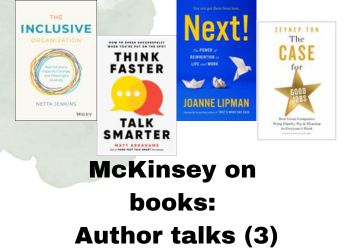

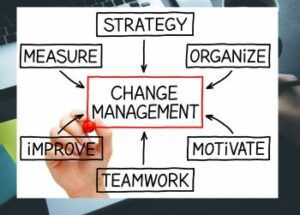
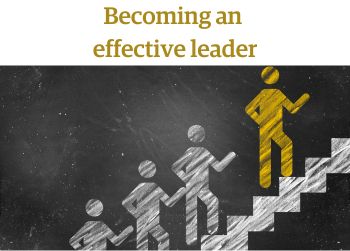
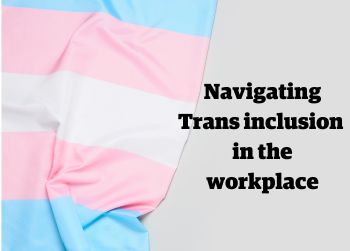


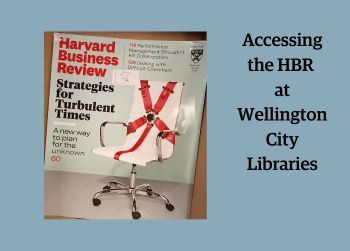
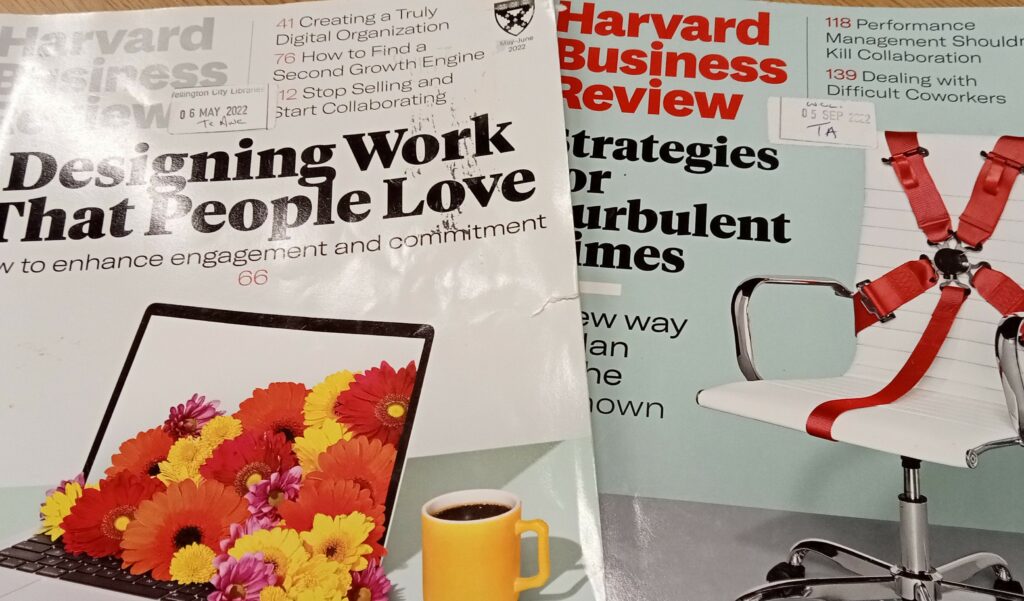










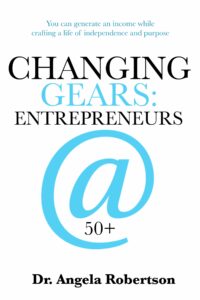
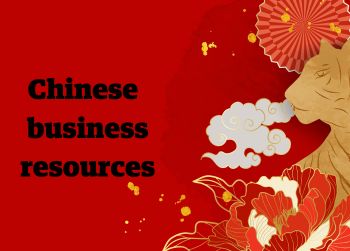

 Our colleague Xinxin has put together a
Our colleague Xinxin has put together a 

